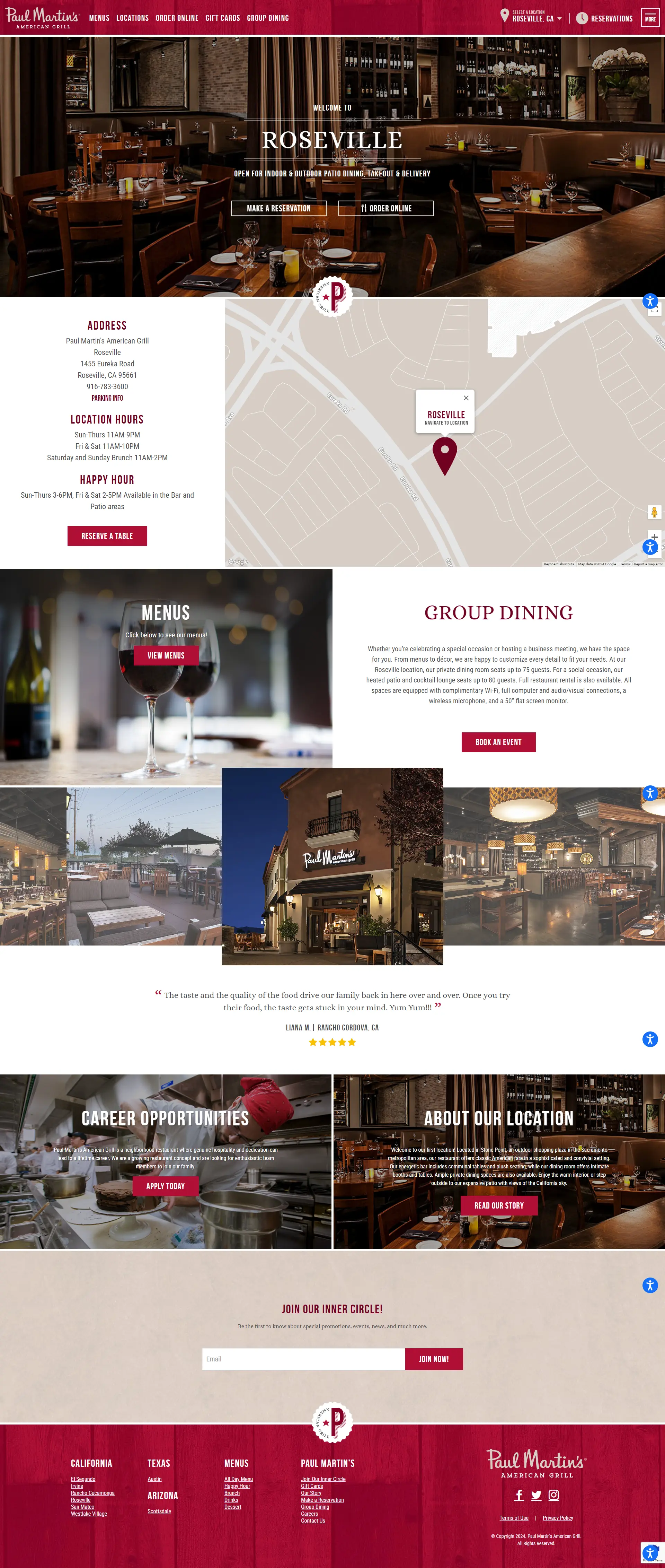Executive Summary
Wix may seem easy to use, but for businesses, WordPress is superior. WordPress offers greater flexibility for integrating essential business tools, better SEO control for higher search rankings, and more scalability for future growth. You also have complete ownership and control over your website. While Wix might be fine for basic websites, serious businesses should choose WordPress for a truly optimized and scalable online presence.
For serious businesses seeking an optimized and scalable online presence, WordPress surpasses Wix.
If you’re just starting your business, you’ll likely end up re-designing your website on WordPress later.
Why Wix Might Not Be the Best Choice for Your Business Website
Wix is a popular website builder, offering an easy drag-and-drop interface and attractive templates. However, when it comes to building a website for your business, Wix presents some limitations that can hinder your online growth. Here’s a closer look at why WordPress might be a better choice:
1. Platform Limitations and Integrations
- Wix: While Wix offers an app market, your options for integrating with third-party tools and services are restricted to what’s available within their ecosystem. This can be a significant drawback if you rely on specific software for your business operations, such as CRM, email marketing, or analytics platforms.
-vs- - WordPress: WordPress boasts a massive plugin repository and a vast developer community. This means you have access to thousands of plugins that can integrate your website with virtually any tool or service you need. This flexibility allows you to tailor your website to your specific business requirements.
2. SEO Challenges
- Wix: Although Wix has made improvements to its SEO capabilities, it still has limitations. One key issue is the non-standard naming conventions for SEO fields, including meta tags. This can create confusion and make it harder to optimize your website for search engines. Additionally, Wix’s website structure can sometimes be less than ideal for SEO purposes.
-vs- - WordPress: WordPress is renowned for its SEO-friendliness. It provides full control over your website’s SEO settings, including meta tags, permalinks, and XML sitemaps. Furthermore, numerous SEO plugins like Yoast SEO offer comprehensive tools to optimize your content and improve your search engine rankings.
3. Scalability and Customization
- Wix: Wix is a good option for simple websites, but it can be limiting if you need advanced customization or plan to scale your website significantly in the future.
-vs- - WordPress: WordPress offers unparalleled scalability and customization. You can easily modify your website’s design, functionality, and content as your business grows. Whether you need a small blog or a complex e-commerce platform, WordPress can handle it.
4. Ownership and Control
- Wix: With Wix, you’re essentially renting your website. You rely on their platform and their rules. If Wix decides to change its pricing or policies, you have limited recourse.
-vs- - WordPress: When you use WordPress, you own your website and its data. You have complete control over your content, design, and hosting. This gives you greater freedom and flexibility in the long run.
Popular Websites Powered by WordPress:
WordPress powers a significant portion of the internet. Here are some examples of popular websites that use the WordPress codebase:
- The New York Times:www.nytimes.com
- Forbes:www.forbes.com
- Variety:variety.com
- Sony Music:www.sonymusic.com
- Microsoft News:news.microsoft.com
- The Walt Disney Company:thewaltdisneycompany.com
- MNKY.agency: MNKY.agency
Summary: Wix vs. WordPress for Business
While Wix offers a user-friendly website building experience, its limitations in terms of integrations, SEO, scalability, and control make it less suitable for businesses with long-term growth aspirations. WordPress, with its flexibility, vast plugin ecosystem, and SEO-friendly nature, provides a more robust and scalable platform for building a successful online presence.
Frequently Asked Questions
Yes, it is possible to migrate your website from Wix to WordPress, but it can be a complex process.
Migrating from Wix to WordPress involves exporting your content from Wix, choosing a suitable WordPress theme, setting up your WordPress site, importing your content, and configuring plugins and settings. While it’s technically possible to do this yourself, it can be time-consuming and challenging, especially if you have a large or complex website. Consider hiring a professional developer or using a migration tool to ensure a smooth and successful transition.
Wix’s SEO limitations include technical SEO restrictions, potential code bloating and slower page speeds, less SEO-friendly URL structures, and limited customization options.
Wix’s use of JavaScript for URL rendering can make it more difficult for search engines to crawl and index your website effectively. This can impact your website’s visibility in search results. Additionally, Wix’s code structure can lead to bloated pages, resulting in slower page load times, which can negatively affect both user experience and SEO rankings.
Furthermore, Wix’s URL structure can be less SEO-friendly, with longer and less descriptive URLs. This can impact the clarity and relevance of your URLs for both search engines and users. While Wix offers some customization options, it’s less flexible compared to WordPress, which can limit your ability to implement advanced SEO techniques and optimize your website’s structure and design fully.
Overall, while Wix can be suitable for simple websites with less emphasis on SEO, if you’re serious about optimizing your website’s visibility and achieving long-term SEO success, WordPress’s flexibility, control, and powerful features make it the superior choice.
WordPress is the undisputed champion for blogging due to its powerful content management features, blogging-specific plugins, and extensive customization options.
WordPress was originally designed as a blogging platform, and it excels in this area. It offers features like post scheduling, categories, tags, commenting systems, and RSS feeds, making it ideal for managing and organizing your blog content. Additionally, numerous plugins, such as Yoast SEO and Editorial Calendar, enhance your blogging experience with SEO optimization, content planning, and social media integration. Wix’s blogging capabilities are more limited, lacking the advanced features and flexibility that WordPress provides.
WordPress, with the help of multilingual plugins like WPML, is generally better suited for creating and managing multilingual websites.
WPML allows you to translate your website’s content, including posts, pages, menus, and even themes and plugins, into multiple languages. It provides seamless language switching, SEO optimization for each language version, and compatibility with various WordPress themes and plugins. While Wix offers multilingual capabilities, it can be less flexible and may have limitations in terms of translation management and SEO for multilingual sites.
Wix is generally considered easier to use for beginners due to its drag-and-drop interface and user-friendly website builder.
Wix’s intuitive interface and visual editor allow beginners to create and customize websites without any coding knowledge. Its drag-and-drop functionality simplifies the process of adding elements and arranging layouts. In contrast, while WordPress also offers visual builders, it traditionally requires a steeper learning curve, involving understanding themes, plugins, and potentially some basic coding for more advanced customizations.
WordPress can be more cost-effective in the long run, especially for larger websites with growing needs, while Wix’s subscription-based pricing can become expensive as your website expands.
While Wix offers free and paid plans, its premium plans come with ongoing subscription costs. As your website grows and requires more resources or advanced features, the cost of your Wix subscription can increase significantly. In contrast, while WordPress itself is free, you’ll need to invest in hosting, a domain name, and potentially premium themes or plugins. However, these costs can often be more manageable in the long run, especially for larger websites with evolving requirements.
Both Wix and WordPress can be secure, but WordPress requires more proactive security measures due to its open-source nature and reliance on plugins.
Wix, as a closed platform, handles security updates and maintenance on its end. However, WordPress’s open-source nature means you’re responsible for keeping your core software, themes, and plugins updated to prevent vulnerabilities. Additionally, choosing reputable plugins and implementing security best practices like strong passwords and regular backups are crucial for maintaining a secure WordPress site.
WordPress boasts a much larger and more active community than Wix, offering extensive support resources and a vast knowledge base.
The WordPress community comprises millions of developers, designers, and users worldwide. This vast community ensures ample support through forums, tutorials, documentation, and online courses. You can readily find answers to questions, troubleshoot issues, and learn new skills within the WordPress community. In contrast, while Wix provides support channels, its community is smaller and less extensive compared to the massive WordPress ecosystem.
WordPress offers significantly more design flexibility than Wix due to its open-source nature and vast library of themes and plugins.
With WordPress, you have complete control over your website’s design and functionality. You can choose from thousands of free and premium themes, each offering unique layouts and styles. Additionally, the vast WordPress plugin ecosystem allows you to add virtually any feature or functionality imaginable, further enhancing your design possibilities. In contrast, while Wix provides a range of templates and design elements, its closed platform nature limits customization options compared to the open-ended flexibility of WordPress.
Both Wix and WordPress offer e-commerce capabilities, but WordPress, with the WooCommerce plugin, generally provides a more robust and scalable e-commerce solution.
Wix’s built-in e-commerce functionality is user-friendly and suitable for small to medium-sized online stores. However, for larger stores with complex requirements or plans for significant growth, WordPress with the WooCommerce plugin offers a more powerful and flexible e-commerce platform. WooCommerce provides extensive customization options, a vast library of extensions, and the ability to scale your online store seamlessly.



















